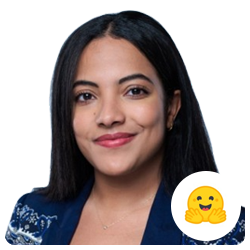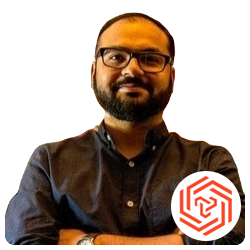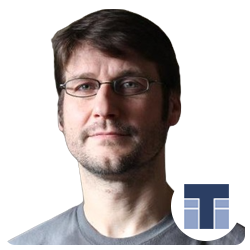10th Toronto Machine Learning Summit
See you in June
Proud partner

June 16th: Virtual Talks
June 17th & 18th: In-person Talks
June 19th: In-person Hands-on Workshops
Tracks Carefully Crafted by a Committee of AI Leaders
You’re not the only one under pressure to deliver AI results without clear playbooks. Join peers navigating the same leadership challenges—from aligning cross-functional technical teams to managing vendor complexity and measuring ROI. Gain insights from deep technical (100-400 level) sessions focused on what’s working in the real world – and what’s to come!
Advanced RAG
We go beyond toy RAG demos to show what it takes to build production systems. From naive baselines to GrapRAG and Prolog-based logic, this track unpacks real failures, benchmarks, and breakthroughs in using LLMs to decode complex domains like government policy. If you like this, you may want to check out the Inference Scaling and Data Preparation & Processing tracks. See the full agenda
Agents Zero to Hero
From modular DAG-based systems in private equity to multi-function agentic chatbots in banking, this track showcases how real agentic systems are being built and shipped. We’ll cover hard lessons, evals that actually matter, and what it takes to move beyond toy prompts to reliable, production-grade AI agents. See the full agenda
AI Ethics and Governance Within the Organization
Forget checkbox ethics. This track explores how teams are making AI governance real—baking trust, security, and accountability into workflows. From CI/CD-integrated risk scans to role-based GenAI frameworks, it’s where compliance meets engineering. A complement to the Exec and Agentic Systems tracks. See the full agenda
AI for Productivity Enhancements
From Vimeo’s multilingual dubbing engine to agentic chatbots in banking and NLP workflows at Reuters, this track highlights real GenAI systems driving measurable productivity gains. It’s where toolchains meet output, and teams get faster—without cutting corners. A complement to Traditional ML and Data Prep tracks. See the full agenda
Technical / Engineering Talks
Hands-on ML/GenAI implementation with production systems, infrastructure, optimization, workflows, pipelines, or applied engineering
Topic Category:
- Data engineering / RAG pipelines– Search / Recommendation systems
- LLM prompt engineering & evals
- Fine-tuning & training– Safety / governance / auditability
- Inference serving & optimization
- Agents / workflow automation / orchestration
- Monitoring & drift detection
- Enterprise adoption / team design


Careers
The lines between ML researcher, engineer, and AI specialist are blurring—tooling, constraints, and responsibilities are shifting fast. This track shows how roles are evolving, from system integration to agentic infra, and helps you navigate where to grow next.
Data Preparation and Processing
Future Trends
GenAI Deployments in Regulated Industries
Business / Executive / Product Strategy Talks
Topic Category:
- AI Strategy & Executive Decision-Making
- AI Adoption & Organizational Change
- ROI, Value & Business Impact
- Operating Model & Governance
- Risk, Compliance & Trust
- Product & Go-To-Market Strategy
- Scaling AI from Pilot to Production
Hardware Platforms
Inference Scaling
MLOps for Smaller Teams
Negative Results
Fundamental Research (No Direct Business ROI)
Topic Category:
- Model architecture– Training methods
- Evaluation frameworks
- Reinforcement learning & control
- Agentic behavior
- Safety / interpretability
- Optimization / search


Traditional ML
Not everything needs a transformer. This track highlights enduring ML techniques applied in modern ways—Scotiabank’s causal forecasting, Meta’s work on popularity bias in recommender systems, and Tutte Institute’s rethink of unsupervised learning in high-dimensional spaces. Still relevant, still evolving.
Vertical Enterprise AI Agents in Production
As enterprises shift from prototypes to real deployments, verticalized AI agents are emerging as key infrastructure. This track explores how organizations are using tailored agents to solve domain-specific problems, integrate with complex systems, and deliver measurable outcomes at scale. See the full agenda
Multimodal LLMs
This track explores models that process video, audio, and images—like MoCha for cinematic-quality talking characters, Vamba for long-form video understanding, and diffusion-powered personalization for retail. If your AI needs to see, hear, and speak, this is the frontier. See the full agenda
Exec Track
With leaders from CIBC, BMO, Scotiabank, and Layer 6, this track explores how Canada’s top financial institutions are approaching AI in a high-stakes, highly regulated environment. From bridging data readiness gaps to driving ROI at scale, these sessions offer strategic, actionable insights for execs navigating real-world AI adoption. See the full agenda
Open Source Model Finetuning
The era of “smaller, smarter” models is here. This track dives into compact LLMs like SmolLM, efficient training strategies that challenge traditional scaling laws, and practical finetuning techniques using open-source tools. Learn how to train, customize, and optimize models locally. Whether you’re tuning for performance, portability, or cost, this track equips you to build smarter with less. See the full agenda
We'd like to extend a large thank you to the Track Leads and Track Committee Members
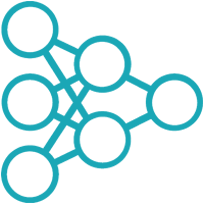
Why Attend
A Unique Experience
For 9 years TMLS has hosted a unique blend of cutting-edge research, hands-on workshops, & vetted industry case studies reviewed by the Committee for your team’s expansion & growth.
We emphasize community, learning, and accessibility.
Join Today
Explore the Uncharted Frontiers of Generative AI
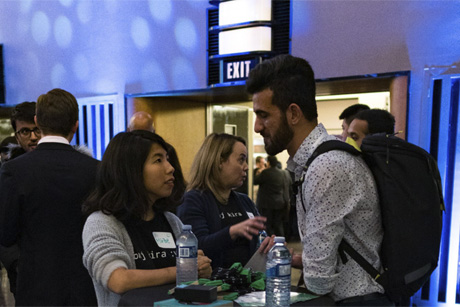
Big Ideas Showcase
See groundbreaking innovations and meet the innovators pushing technological boundaries in Gen-AI.
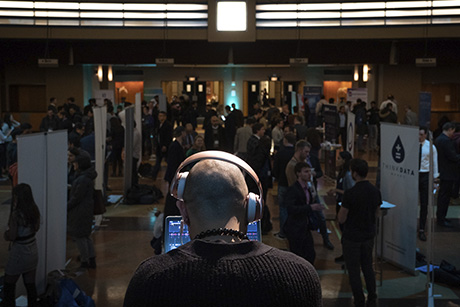
Explore & Network
Key Dates & Details
Network via Community App
Introduce yourself and meet speakers/attendees!

Event app opens
June 2nd
Virtual Talks & Workshops
Virtual talks and workshops.

June 16th
9:30 AM – 5:00 PM EST
Attend the Summit!
See 60+ talks, case-studies in various tracks and Industries.
81 Bay St.,
Toronto, ON M5J 0E7
June 17th & 18th
8:45 AM – 4:50 PM EST
Upskill via Workshops
In-person bonus hands-on workshops.

101 College St,
Toronto, ON M5G 1L7
June 19th
9:30 AM – 4:15 PM EST
Past Event Speakers
Past Sponsors
Platinum Sponsor
Sponsors
Community Partners
Interested in Partnering? Email Faraz at faraz@torontomachinelearning.com
Who Attends
2025 Event Demographics
Technical Background
Business Leaders: C-Level Executives, Project Managers, and Product Owners will get to explore best practices, methodologies, principles, and practices for achieving ROI.
Engineers, Researchers, Data Practitioners: Will get a better understanding of the challenges, solutions, and ideas being offered via breakouts & workshops on Natural Language Processing, Neural Nets, Reinforcement Learning, Generative Adversarial Networks (GANs), Evolution Strategies, AutoML, and more.
Job Seekers: Will have the opportunity to network virtually and meet over 30+ Top Al Companies.
TMLS is a community response addressing the need to unite academic research, industry opportunities and business strategy in an environment that is safe, welcoming and constructive for those working in the fields of ML/AI.
See our team and learn more about the Toronto Machine Learning Society here.
Tickets
This event has ended
Past Event Agenda
Loading...
